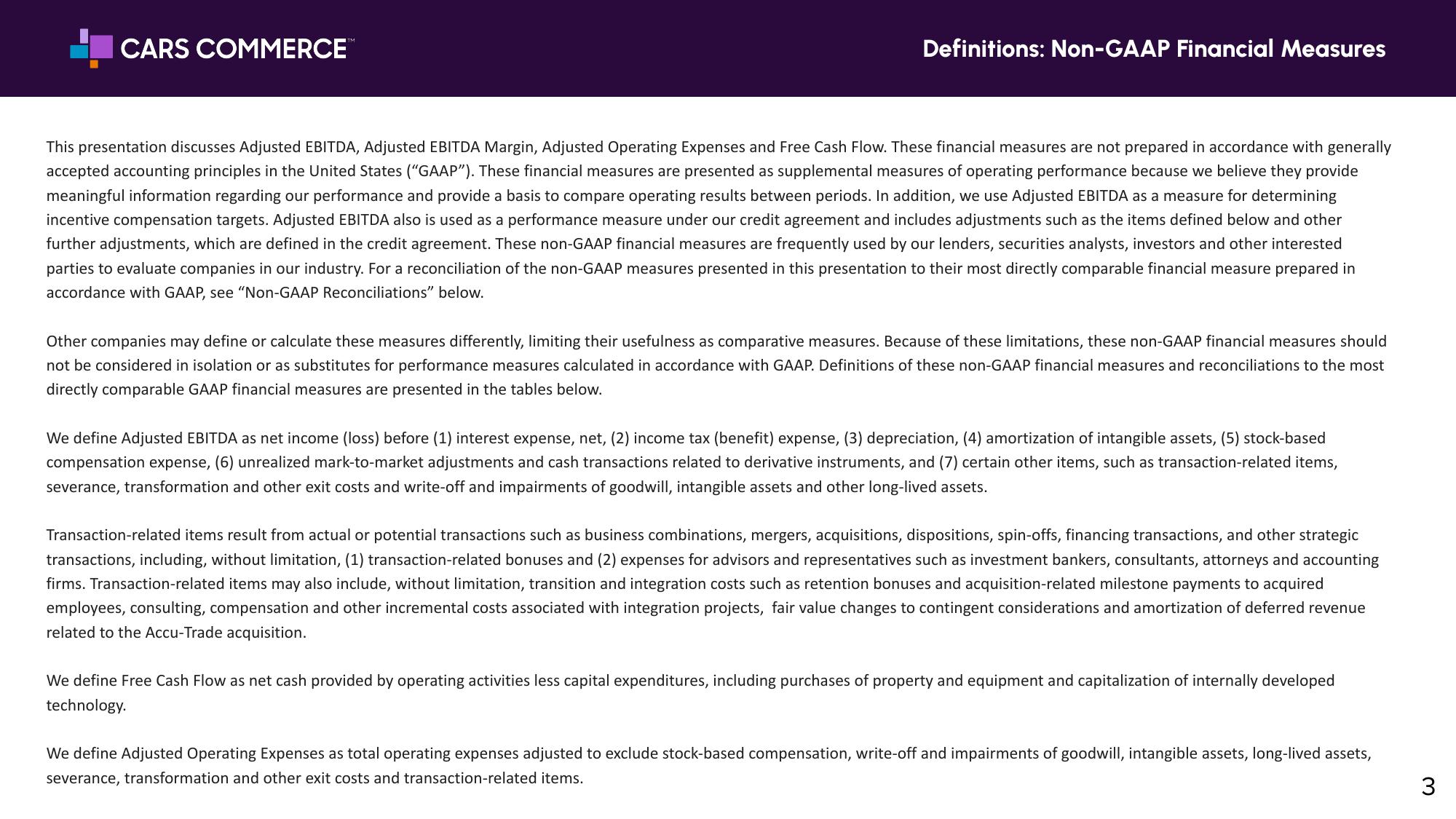Investor Relations
CARS COMMERCE
Definitions: Non-GAAP Financial Measures
This presentation discusses Adjusted EBITDA, Adjusted EBITDA Margin, Adjusted Operating Expenses and Free Cash Flow. These financial measures are not prepared in accordance with generally
accepted accounting principles in the United States ("GAAP"). These financial measures are presented as supplemental measures of operating performance because we believe they provide
meaningful information regarding our performance and provide a basis to compare operating results between periods. In addition, we use Adjusted EBITDA as a measure for determining
incentive compensation targets. Adjusted EBITDA also is used as a performance measure under our credit agreement and includes adjustments such as the items defined below and other
further adjustments, which are defined in the credit agreement. These non-GAAP financial measures are frequently used by our lenders, securities analysts, investors and other interested
parties to evaluate companies in our industry. For a reconciliation of the non-GAAP measures presented in this presentation to their most directly comparable financial measure prepared in
accordance with GAAP, see "Non-GAAP Reconciliations" below.
Other companies may define or calculate these measures differently, limiting their usefulness as comparative measures. Because of these limitations, these non-GAAP financial measures should
not be considered in isolation or as substitutes for performance measures calculated in accordance with GAAP. Definitions of these non-GAAP financial measures and reconciliations to the most
directly comparable GAAP financial measures are presented in the tables below.
We define Adjusted EBITDA as net income (loss) before (1) interest expense, net, (2) income tax (benefit) expense, (3) depreciation, (4) amortization of intangible assets, (5) stock-based
compensation expense, (6) unrealized mark-to-market adjustments and cash transactions related to derivative instruments, and (7) certain other items, such as transaction-related items,
severance, transformation and other exit costs and write-off and impairments of goodwill, intangible assets and other long-lived assets.
Transaction-related items result from actual or potential transactions such as business combinations, mergers, acquisitions, dispositions, spin-offs, financing transactions, and other strategic
transactions, including, without limitation, (1) transaction-related bonuses and (2) expenses for advisors and representatives such as investment bankers, consultants, attorneys and accounting
firms. Transaction-related items may also include, without limitation, transition and integration costs such as retention bonuses and acquisition-related milestone payments to acquired
employees, consulting, compensation and other incremental costs associated with integration projects, fair value changes to contingent considerations and amortization of deferred revenue
related to the Accu-Trade acquisition.
We define Free Cash Flow as net cash provided by operating activities less capital expenditures, including purchases of property and equipment and capitalization of internally developed
technology.
We define Adjusted Operating Expenses as total operating expenses adjusted to exclude stock-based compensation, write-off and impairments of goodwill, intangible assets, long-lived assets,
severance, transformation and other exit costs and transaction-related items.
3View entire presentation